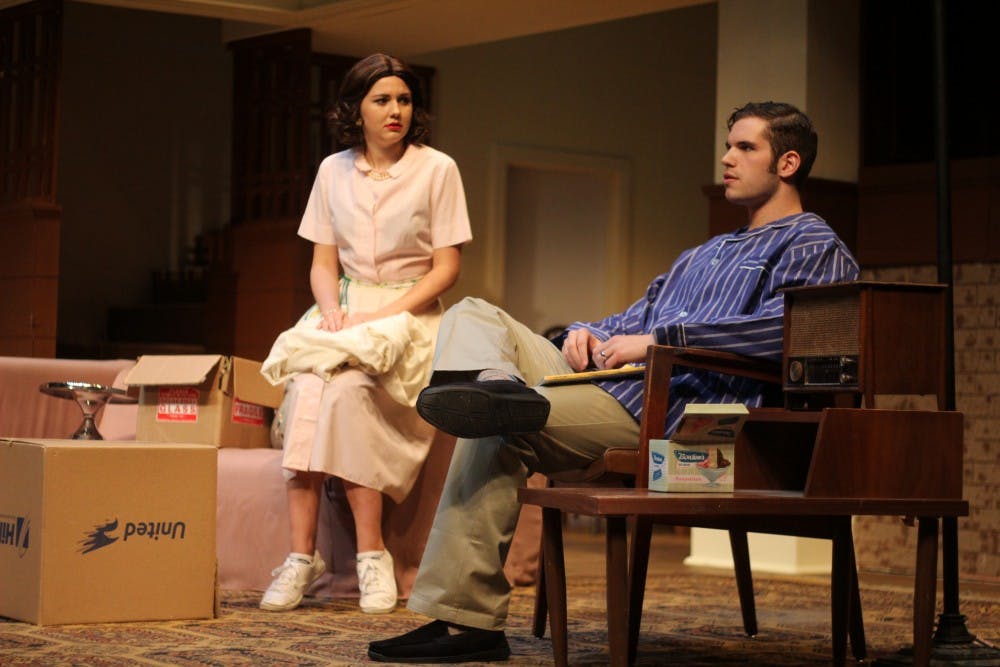Portraying events taken play before and after the Hansberry play, “Clybourne Park” discusses racial issues and show the similarities between the world today and the 50s, which is a time that seems far away and less progressive despite only being 60 years in the past.
“Clybourne Park,” a play by Bruce Norris, was written in 2010 as a spin-off to Lorraine Hansberry’s play, “A Raisin in the Sun,” which is loosely based on historical events that occurred in Chicago.
The Department of Performing Arts will be putting on “Clybourne Park” April 14 through 17 in McCrary Theatre at 2:00 p.m. and 7:30 p.m.
There will also be a post-show discussion of the play in the theater at 4:15 p.m. immediately following the final performance on Sunday. All who see an earlier performance are invited to return then to share their thoughts and ask questions of the cast.
Unlike many plays, the two acts in “Clybourne Park” are split up into two time periods, with the first act taking place in 1959 and the second act taking place in 2009. In the first act, a white family is selling itshome to a black family in a predominantly white neighborhood. The second act skips forward to a white couple buying a house in the same neighborhood, which has become predominantly black.
Actors switch between different characters in each act, to further show the similarities between the two time periods.
Senior Nicole Brydon Bloom plays Betsy Lindner in the first act and the role of Lindsey in the second act.
“Both acts kind of deal with how views on racism have or haven’t changed between the 1950s and 2000s,” Bloom said. “But it’s a funny show. It sounds pretty serious, but it’s not politically correct at all. It’s a very sharp satire.”
With race as the main topic of the play, some lines are so sharp that Bloom said the audience might not know exactly if they should laugh or not. Some of these lines are even uncomfortable for the actors to say because they are not politically correct.
For example, one of Bloom’s characters tries to be politically correct but fails.
“At one point, Lindsey is trying to make up for her husband’s racial comments and tells the two African-American characters, ‘Half of my friends are black’,” Bloom said. “She thinks this helps the situation, but it’s one of the hardest lines for me to say. It’s not politically correct or helpful at all.”
Bloom finds the greatest challenge is to play a woman who thinks she is knowledgeable about a subject, when in reality she is almost as ignorant as her husband, played by junior Christian Frost.
“My favorite part is probably being able to portray two completely different characters in different time periods and exploring the social norms of those times,” Frost said.
But for Frost, it is also difficult to get into the complete mindset of two unique individuals.
“The most difficult thing is trying to find out who these people are and figuring out what they are outside of this play. Where they work, what’s the relationship between them and the spouse and how this topic affects them personally,” he said.
But no matter how challenging the roles may be, the actors feel that the play leaves students with an important message by juxtaposing the two decades.
“I think it offers a new perspective on this part of American history that we all have learned about but often sidestep or avoid,” Bloom said.


